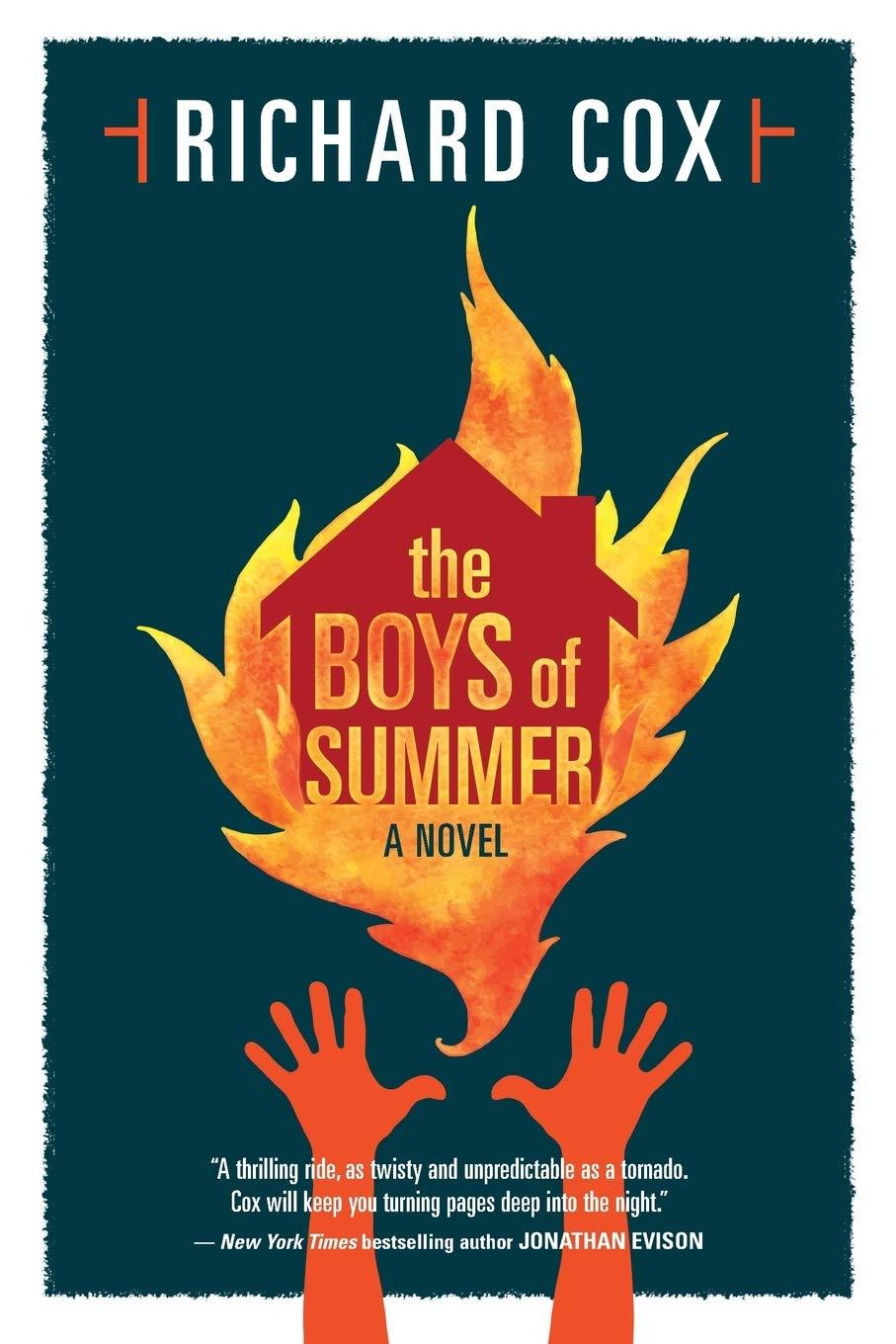
SCIENCE FICTION/FANTASY
Richard Cox
Night Shade Books
Paperback, 978-1-59780-878-1 (also available as an ebook), 436 pgs., $15.99
September 6, 2016
The tornado that struck Wichita Falls, Texas, on April 10, 1979, serves as the catalyst for this coming-of-age story. The Boys of Summer are Bobby (the jock), Jonathan (the brain), David (as in King), Adam (the born-again), and Todd (the cipher), nine and ten years old when the storm alters the trajectories of all of their lives. Todd is so traumatized by the tornado that he enters a catatonic state. When he surfaces four years later, he possesses a maturity beyond his years, and a creepy knowledge of events that have not happened yet. Twenty-five years later history begins to repeat itself, and the boys, now men, must face the consequences of their actions and account for how they’ve spent their lives.
The Boys of Summer by Richard Cox is difficult to qualify. It is speculative fiction, science fiction, historical fiction, and fantasy, incorporating political, economic, and religious philosophies. It reminds me simultaneously of Stand by Me (1986), The Omen (1976), and The Truman Show (1998). The Boys of Summer deals in free will and predestination, asking whether the individual can rewrite the ending. And maybe the beginning.
Cox’s plot feels labyrinthine, but this is deceptive. It’s really quite simple, unfurling at a steady pace while Cox insidiously doles out puzzle pieces. A subplot involving a Wichita Falls detective whose wife has the same diagnosis as Todd had—catatonic schizophrenia—executes the rare feat of enhancing the main plot. It meshes seamlessly. The story moves back and forth in time from the afternoon of the tornado, to events immediately following Todd’s re-emergence into the world, and the reckoning for those events twenty-five years later. The ominous weather forecasts that begin each section of the novel are an inspired touch. It is possible to go crazy from the heat.
Cox is particularly good at channeling early adolescent angst. “Darth Vader turned out to be Luke’s father, Princess Leia was his sister,” Todd thinks when he awakes, “and the whole world seemed to have lost its mind.” These boys are complex, authentic, and relatable. The lone girl in the group, Alicia, is a well-developed character, but seems to serve merely as a token female. Her significance is unclear. As adults, these characters are less well-defined, with the exception of King David (who “shed his Texas accent and sheath of Middle American fat and his antiquated social conservatism”) who is terribly definite, motivated by the ultimate in insider information.
Wichita Falls itself gets knocked hard by Cox. Riven with class issues, the town is portrayed as a cultural wasteland populated by rednecks and a few wealthy, pseudo-religious hypocrites. On the other hand, his portrait of the ’80s is atmospheric, with its references to the multi-sided dice of Dungeons & Dragons, Atari video games, and Don Henley lyrics. Cox is capable of arresting imagery. During the 1979 tornado, the sky “looked like it had fallen to the earth.” The bleached, white-hot sky of the Wichita Falls summer resembles “overexposed film.”
Cox has created a strange and intriguing mix of elements which, with liberal use of foreshadowing, engenders genuine curiosity and keeps the pages turning. I am flummoxed, but happily so, still at a loss as to what The Boys of Summer is. I do know that it is compelling and a little maddening, and the space-time continuum has been spectacularly compromised.
